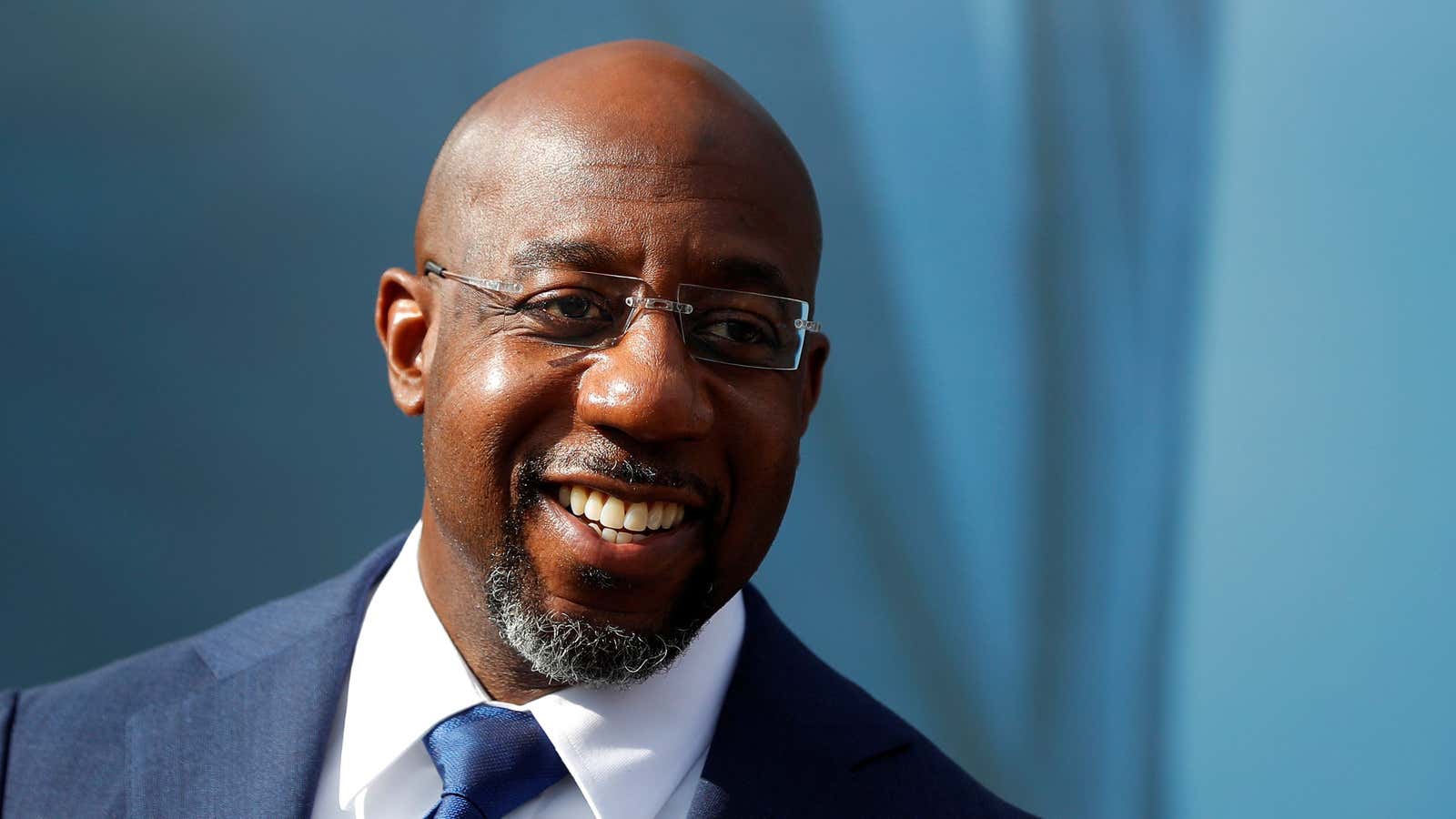Raphael Warnock will be Georgia’s first Black senator. The preacher’s historic victory is one of a number of firsts made by members of the 117th congress, which is the most diverse to date. Representatives include the first two openly gay, Black men, and the youngest member of congress since 1797. The new US Congress will also seat more women and women of color than any other in history.
This diversity of politicians means congress is becoming more reflective of the people it represents. Just 11% of new congress members are Black, compared with 13% of the population. Indigenous representation is similar; 0.9% of congress is Native American compared to 1.3% of the population.
Despite historic wins, however, representation of women is still much lower than the population. While there will be 17 or 18 more women in the 117th congress compared to the last (dependent on the outcome of court challenges in one New York congressional district), congress will still only be 27% women. It’s far from the 51% majority women make of the US population.
We’ve gathered the demographics of the new cohort. See for yourself how congress’s representation compares to the last and how well it mirrors the diverse country it serves.
